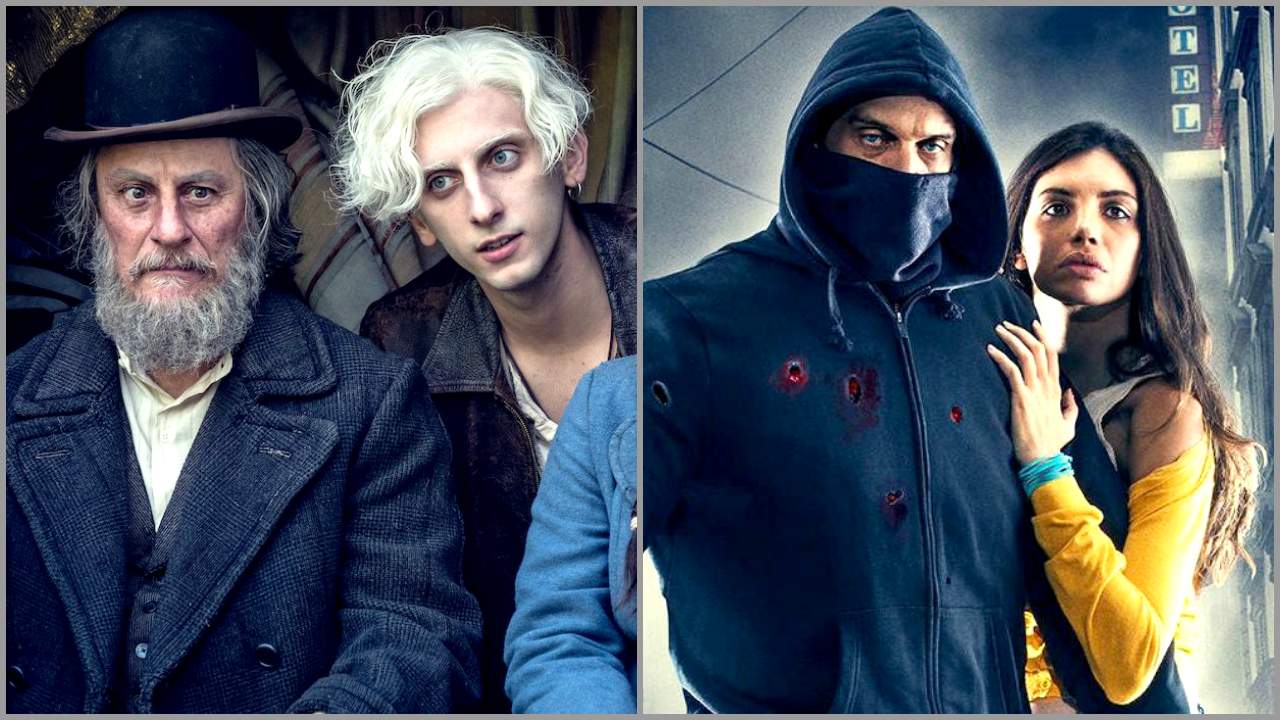In a meeting at the Rome Film Festival, the director of Lo They Called Jeeg Robot, Gabriele Mainetti, told us about his vision of cinema and showed three clips of the authors that he considers essential.
Nell’ “Close encounter“to Rome party, director Gabriele Mainetti managed to show his vision of the medium and his creative spirit in an incredibly complete way: with a robust dose of self-irony, the author of They called him Jeeg Robot and imminent Freaks Out he guided us through three feature film clips by three authors who marked him and which he considers essential for his training. All this to understand not only him, but also part of ourselves: cinephile and nerd, Mainetti is the same age as the writer, and it is easy to share at least part of the emotions with him.
Gabriele Mainetti, The Brancaleone Army and Mario Monicelli
The first clip chosen by Gabriele Mainetti is from The Brancaleone army (1966) by Mario Monicelli, the immortal film with Vittorio Gassmann. Because? It is easy that the genesis of the outcasts in Freaks Out you come from that DNA, but the qualities of Monicelli he admires are there lightness powered by a large culture, and the construction of characters that seek the myth even when they fail, without ever losing their motivation even when they are unlikely to others or to themselves. He appreciates a certain fatalism of Monicelli, according to which “wonder seldom happens“and certainly one must not create always expecting to grasp it. Gabriele appreciates, but also admits, elsewhere in the encounter, that he does not know how to produce works with the speed of the great Mario. Five years have passed since They called him Jeeg Robot!
Freaks Out: The Official Movie Trailer – HD
Gabriele Mainetti, A Fistful of Dollars and Sergio Leone
Per Sergio Leone, Mainetti chooses the scene of the speech on the mule in For a bunch of dollars (1964), motivating it precisely: although the film was a remake (unauthorized and then contested) of Kurosawa’s The Samurai Challenge, for him the shooting of the coffins joke at the end of the sequence smells of a specific Romanity that knows how to project itself on a level international but she does not forget herself: “There were four coffins, not three” for Mainetti could perfectly be translated as “I am sbajato, there were four, not three!“It is clear that” feeling at home but talking to everyone “, the two essences of Leo that coexisted, deeply fascinate Mainetti: if you are an” American “in your own regional mental space, you have to look for a credibility and a characterization close to one’s own sensitivity. To be able to emotionally navigate everywhere it is a great Italian quality that he admires in Sergio Leone’s cinema, in addition to the desire to constantly challenge himself until the apex of Once upon a time in America. It is on the same line as Quentin Tarantino, what idolatrous Leo? Of course, but Gabriele frames a difference between Sergio and Quentin (who he also adores): “When Tarantino creates he looks at the cinema himself, Leone looks at … something else”. A personal vision of the world and of the image.
Gabriele Mainetti, E. T. L’extaterrestre e Steven Spielberg
Gabriele Mainetti’s third compass is Steven Spielberg, for which he chooses the ending of ET – The extraterrestrial (1982). “Maybe it was my first movie seen in the cinema?” (asks his dad for confirmation in the dining room). With our full support, he draws a comparison between the farewell to ET and the farewell to Bing Bong in Pixar’s Inside Out (curiously, we thought of the comparison for the first time right during the clip, before it brought up the animated film. !), also reminding us that Spielberg decided to have children and “to grow up“right after the experience of ET Because the lesson of a great like Spielberg is not only in his unique ones ability to staging, in the magic with which it combines formalism and content, but also in its constant necessary and transparent empathy with what it tells, on a profound human level. A plan that however for Gabriele, in an Italian context, should be corrected with theself-irony to be credible in our culture and in our creations.
It is the progressive abandonment of the storyboard in Spielberg’s production in recent years that pushes Mainetti to outline one of the greatest emotions of his work: “The beauty of this profession is be surprised in the moment, the human mind cannot foresee everything, cinema is a collective journey [coi collaboratori e con gli attori]”. There is sincere love for the profession in the words of Gabriele Mainetti, with a marked pragmatic tendency. There was prejudice around They called him Jeeg Robot, why was it strange to do genre cinema in Italy? “Better, if you leave with negative bias, it’s easier for you to make a good impression. If one expects the masterpiece, then maybe he sees and says to you: oh sure, kill what a beautiful shit you did! “
They Called Him Jeeg Robot: New Official Movie Trailer – HD
–


